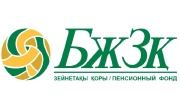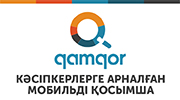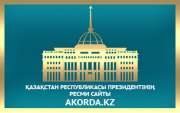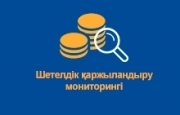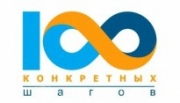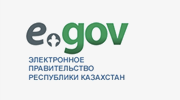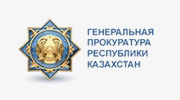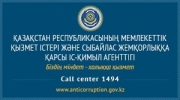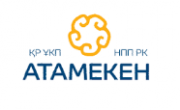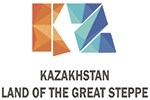
Innovations in the Tax Code of the Republic of Kazakhstan provide for preventive measures and are designed to facilitate the payment of taxes by both legal entities and individuals.
Thus, according to the new changes, taxpayers will be notified of the existence of tax obligations. In this regard, citizens can provide information about their phone numbers and email address to the tax authority.
The fulfillment of tax obligations of entrepreneurs will be simplified with the introduction of the mobile application "e-Salyqbusiness". The application will enable online registration as an individual entrepreneur, calculation of taxes and social payments, cancellation of the submission of TF for persons subject to the specified special tax regime.
Also, the seizure of accounts will be applied only if the tax debt exceeds 6 MCI (17,502 tenge). If the debt is below this amount, measures for seizure of the accounts are not applied.
Second-tier banks are now entitled to carry out debit operations on the account until the cancellation of the order of the tax authority on the suspension of debit operations on the taxpayer's bank accounts when paying off the debt specified in it.
And the indication of the recipient's IIN/BIN in the online cash register receipt is provided in order to exclude additional encumbrances for small businesses. Thus, an individual entrepreneur who is not a VAT payer, for civil transactions in the amount of more than 1,000 MCI (2.9 million tenge), may provide the buyer with online cash register receipt instead of electronic invoice. In connection with exclusion of requirement for issue of electronic invoice from 2022, the small business entities and persons selling goods at retail to the end consumer are not required to issue the electronic invoice, provided that the buyer is provided with online cash register receipt.
In addition, if an entrepreneur allocates income to reinvest in new fixed assets, then this income will not be subject to CIT. This measure is provided for in order to improve the investment climate and the development of the manufacturing industry, so small business entities of the manufacturing industry are not imposed CIT on profits that will be reinvested in the development of production (acquisition or construction of buildings and structures for industrial purposes).
Deduction of interest expenses for intra-group loans is provided for the purpose of granting the right to deduct interest expenses for loans received by subsidiaries from the national parent company.
Moreover, the Tax Code of the Republic of Kazakhstan provides for a number of the following changes:
- the correspondence of the norms of the Tax Code with the legislation on the cotton industry is provided in connection with the adoption of the Law of the Republic of Kazakhstan "On amendments to Certain Legislative Acts of the Republic of Kazakhstan on the cotton industry and the recognition of the Law of the Republic of Kazakhstan "On the development of the cotton industry" as invalid;
- reduction of taxable income for CIT by social entrepreneurship entities in the amount of expenses incurred to pay for training, advanced training or further training of socially vulnerable categories of the population who are in labor relations with such an entity, but not more than 120-fold MCI, effective on January 1 of the corresponding financial year per employee for the tax period, is provided for in order to stimulate social entrepreneurship;
- additional VAT offset (70%) is provided for new manufacturing companies when selling goods produced in the manufacturing industry in order to stimulate the creation of new industries, as well as increase investment in the manufacturing industry;
- increase in use of VAT exemption on imports to the FEZ "Qyzyljar" is provided for the purpose of reducing the cost of agricultural machinery by 12% percent and ensuring its availability;
- using minimum level of control prices for certain goods from the EAEU countries will help prevent the facts of undervaluation of imported goods and will allow VAT to be collected from the current tax base, the measure is aimed at supporting and protecting domestic producers, since it will allow applying mirror measures against countries that discriminate against Kazakh exports;
- applying reduced 0.5% property tax rate by social entrepreneurship entities and the granting of the right to choose one of the lowest tax rates, if the social entrepreneurship entity complies with several provisions of paragraphs 2, 3, 4 and 5 of Article 521 of the Tax Code, these changes are provided for in order to ensure access of representatives of certain target groups to entrepreneurial activity;
- granting (from 2023 to 2025) the right to entrepreneurs working in the field of public catering to apply the STR of retail turnover tax for 2 years, with the establishment of a tax rate of 6%, this measure is provided for in order to reduce the tax burden for the catering sector;
- attributing the employer's expenses for employees aimed at organizing and conducting sanitary and anti-epidemic, sanitary and preventive measures in connection with the introduction of restrictive measures, including quarantine to deductions item for the purpose of calculating the CIT, as well as not recognizing these expenses as an employee's income;
- introduction of a fee for digital mining is provided for the purpose of legislative regulation of the crypto currency mining industry, as well as increasing cash receipts to the budget from mining;
- extension of the deadline for submitting the certificate of residence until December 31, 2021, this measure is provided for in order to exclude double taxation during the period of restrictive measures, since the submission of documents is difficult due to the introduction of quarantine measures in foreign countries;
- postponement is provided for the payment of personal income tax and social tax from April 1 to July 1, 2021 in order to support business entities in the industries most affected by the pandemic.














